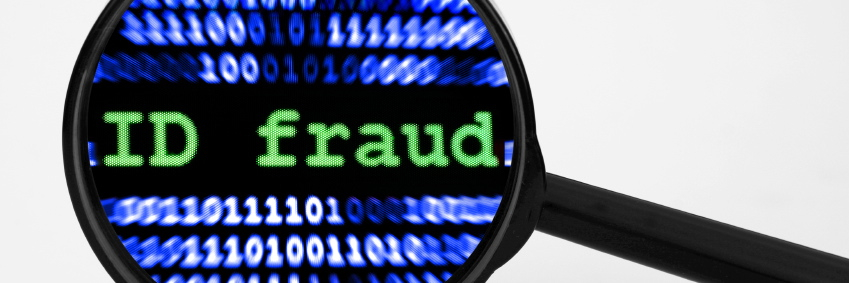Member Privacy & Information Protection is Our Top Priority
St. Paul Federal Credit Union values member privacy and takes every precaution to ensure the safety of member information. If there is ever a breach with any of our vendors we will contact you as soon as possible but we will never ask you for your personal account information.
There is no reason to fear any electronic service when you take the proper precautions. Electronic services have allowed us to change the way we do nearly everything, making life more convenient and giving us access to information we couldn’t have even imagined just a few years ago.
Types of Identity Theft
High-tech identity theft accounts for a small percentage of all identity theft. More commonly, identity information is stolen using techniques like “dumpster diving”. That doesn’t mean that just shredding and protecting your private documents will keep you completely safe, however. The following are examples of commonly used high-tech forms of ID theft.
Types of High-Tech Identity Theft
Phishing
Phishing occurs when a criminal impersonates a reputable source to attempt to acquire passwords, bank information, and other sensitive personal information. The most typical form of phishing occurs when an email is sent to you from what seems to be a familiar source. When you click the link in the email it brings you to a website designed to steal your private information as you enter it.
Pharming
Pharming is a form of phishing that utilizes a dummy website that has been set-up to appear nearly identical to a legitimate website. These sites are typically active for only a very short time to prevent detection by the legitimate business site. The pharming website is designed to steal your private information as you enter it.
SMiShing
SMiShing is a new form of identity theft designed to access your cell phones SMS text-messaging feature to inform you that your account information has been compromised. Examples of SMiShing are (1) This message is a confirmation to your enrollment in XYZ ringtone service. The service charge of $2 a day will be billed to your cellular bill. Please call 1-866-123-1234 to cancel this service. -or- (2) Your ATM card has been frozen due to fraud. If this freeze has come in error please call 1-866-123-1234. The call back number on these messages will direct you to the SMiShers call center where they will attempt to steal your private information.
Vishing
Vishing occurs when a criminal contacts you over the phone, often using high-tech dialing machines that are capable of manipulating the number shown on your caller ID. Just like the other high-tech forms of identity theft, they will typically inform you that you have a compromised account and need to verify your information.
Malware
Malware, a term derived from the words “malicious” and “software” can be installed on your computer quickly and quietly when you do something innocent such as clicking a pop-up window or an email link. Also called “spyware” and “computer viruses”, malware can silently install a key logger or other virus that can record and transmit every keystroke you make on your computer, including your usernames and passwords.
How St. Paul Federal Protects You
Phishing
St. Paul Federal Credit Union will not contact you through email except for promotional offers and information on new products. If you receive any emails informing you that you have compromised information please contact us directly and we will look into the origin of the communication.
Pharming
When accessing your account through our eBanking service you are required to go through an extensive multi-factor authentication process. The security image that you chose when setting up your account is stored internally and will not appear if the site has been falsified. If you attempt to access eBanking and it appears differently then it would normally in any way, contact the credit union immediately. We will post any changes to our eBanking on the website prior to implementing those changes.
SmiShing
St. Paul Federal Credit Union does not currently send any SMS text messages to our members. Any communication received in the form of text message will not be from the credit union.
Fishing
If St. Paul Federal Credit Union initiates a conversation with you we will not ask for your account information because we have securely stored that information. If you are uncomfortable with any call, end the call and phone the credit union back at one of our direct numbers (651-772-8744 or 1-800-782-5767).
Malware
St. Paul Federal Credit Union recommends that you install anti-virus and anti-spyware software on your computer and always keep that software up-to-date.
A Proactive Approach to Identity Theft
The best way to protect yourself from identity theft is to be proactive. Approach electronic services carefully, never give out your account information to an un-known source, and always ensure that your anti-virus and anti-spyware software is up to date. Create passwords that combine letters in both cases and numbers/symbols. Be sure to shred all your confidential documents before throwing them away. Above all, monitor your account for mysterious transactions and check your statements monthly for any transactions you did not initiate.
Remember, no employee of St. Paul Federal Credit Union will ever contact you asking directly for your account information. Although we may contact you, your account information is stored within our system so we have no need to ever ask for it.

